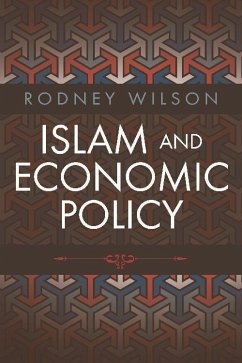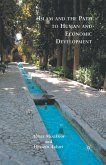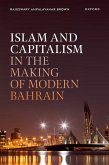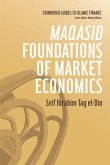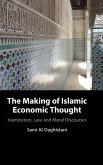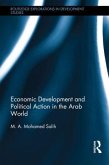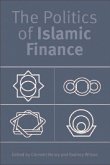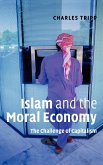'With pragmatic policy guidelines from an Islamic perspective - the product of professional analysis by one of the most senior writers in Islamic economics and finance - this book is a crucial addition to the shelves of libraries, desks of corporate CEOs and top policy-makers.' Munawar Iqbal, Senior Professor, Islamic Economics Institute, King Abdulaziz University, Jeddah, Saudi Arabia To what extent do Islamic values have implications for economic policy making? Islamist political parties have enjoyed unprecedented election victories in recent times. The Islamic Revolution in Iran, the election of the Justice and Development Party in Turkey and the coming to power of Islamists, albeit briefly, after the Arab Spring, are events that have changed the political landscape in the Middle East with ramifications for the entire Muslim World. Yet the continuing success of these parties depends on their record on economic development and employment creation. Are their economic policies different from those of their autocratic predecessors? Have they been influenced by the writings of academic Islamist economists? This book looks at the impact of Islamic teaching on public economic policy and asks how Islamic economics differs from mainstream micro and macroeconomics. Key Features - Looks at how Islamic values can influence choices made by businesses and governments - Asks whether Shari'ah teaching affects taxation and social welfare policies - Assesses the potential of Islamic economics to provide an alternative to a capitalist economic system and looks at the implications for international economic relations - Individual chapters evaluate the economic successes and failures of OIC member states (Bangladesh, Egypt, Indonesia, Iran, Malaysia, Pakistan, Tunisia and Turkey) and their changing status in the global economic order Rodney Wilson was the founder of the Islamic Finance Programme in Durham University. He is author of several books including Islamic Banking and Finance in North Africa (2011), Legal, Regulatory and Governance Issues in Islamic Finance (Edinburgh University Press, 2012) and Economic Development of the Middle East (Second Edition 2013). Cover image: tbc Cover design: [EUP logo] www.euppublishing.com
Hinweis: Dieser Artikel kann nur an eine deutsche Lieferadresse ausgeliefert werden.
Hinweis: Dieser Artikel kann nur an eine deutsche Lieferadresse ausgeliefert werden.

